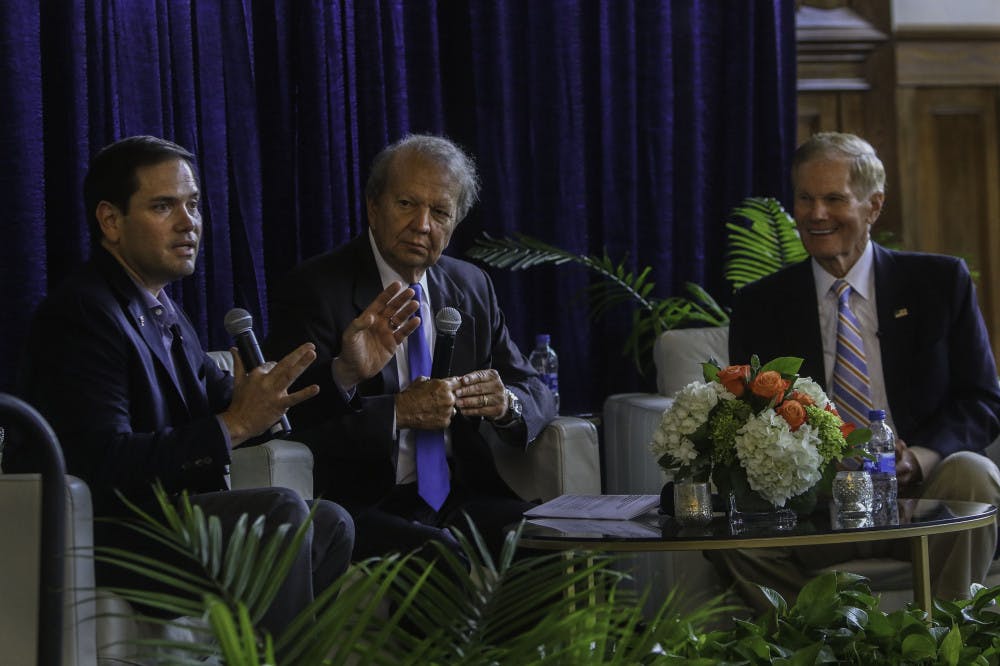UF alumnus Sen. Marco Rubio and former Sen. Bill Nelson spoke at UF Tuesday afternoon to discuss their bipartisan relationship in the U.S. Senate.
More than 200 people gathered in the Grand Reading Room of Smathers Library to see the event, which was the first of an ongoing series of the Bill Nelson Initiative on Ethics and Leadership at UF. The two senators spoke about bipartisanship in this inaugural public forum discussion.
Rubio was first elected to the U. S. Senate in 2010 and reelected in 2016. Nelson was first elected in 2000 and served until 2019, after he lost in the November 2018 election to Sen. Rick Scott. After his time in the Senate, he started the Bill Nelson Initiative on Ethics and Leadership at UF.
His initiative will include regular ongoing series of speakers and seminars, classes for UF undergraduate and graduate students and a fellowship program for UF graduate students interested in more in-depth examination of these topics, said Joe Glover, senior vice president for academic affairs.
Nelson plans to bring in different senators for similar discussions and astronauts to one of the events.
Jon Mills, a UF law professor and director of the Center for Governmental Responsibility at the Levin College of Law, served as the moderator between the two senators at the event.
“I think we can all agree issues like ethics and leadership are not partisan issues,” Mills said. “They are values that we share as Americans.”
Nelson said he and Rubio worked together well, which turned their professional relationship into a personal friendship.
“When it came to [the state of] Florida, we got things done,” Nelson said.
Rubio and Nelson explained examples in history where people work together who would not normally be considered political allies. They described Ronald Reagan solving issues of social security in a difficult time, and the majority of U.S. Senate Democrats and Republicans passing the Civil Rights Act in 1964.
The two senators also discussed having a bipartisanship relationship with the examples of solving issues from Hurricane Irma together.
Rubio said bipartisanship is not newsworthy.
“Ninety percent of the stuff on the news is partisan, 90 percent of the things done in the Senate are not,” Rubio said.
Adreanna Martinez, a 20-year-old UF history and political science senior, attended the event.
She mentioned how Rubio said, “a republic requires you to realize, am I here to make a point or am I here to make a difference?"
That question resonated with her because people often forget to see this bigger picture in an increasingly partisan society, she said.
“It was refreshing to hear about Rubio and Nelson's experiences of working together for the welfare of the state of Florida despite their ideological differences,” Martinez said.






